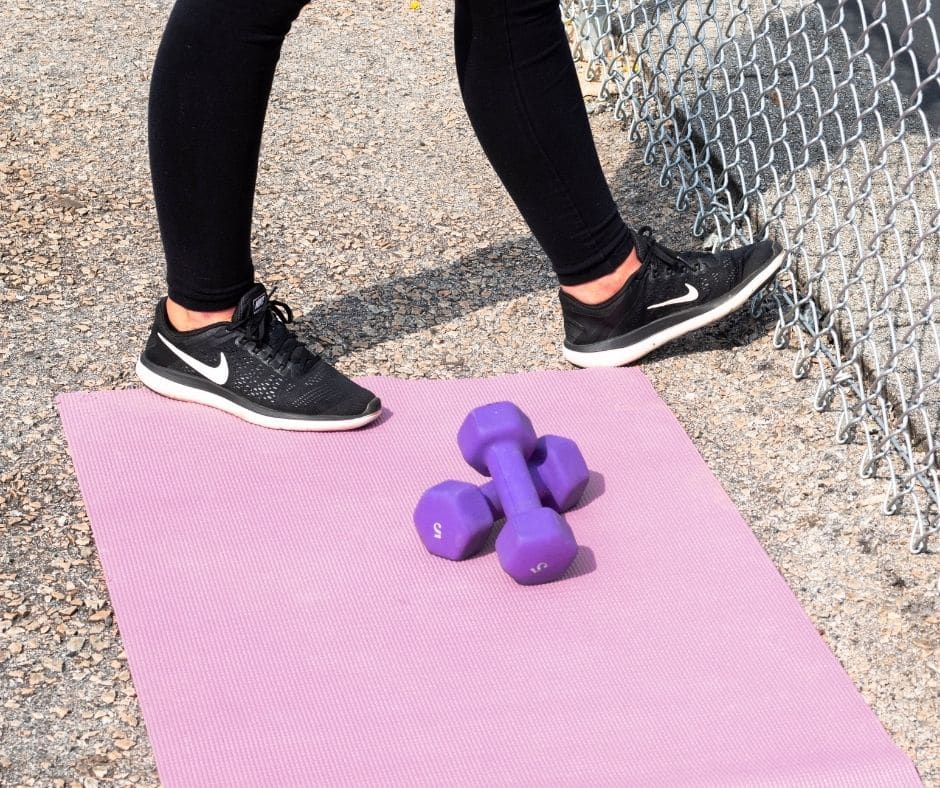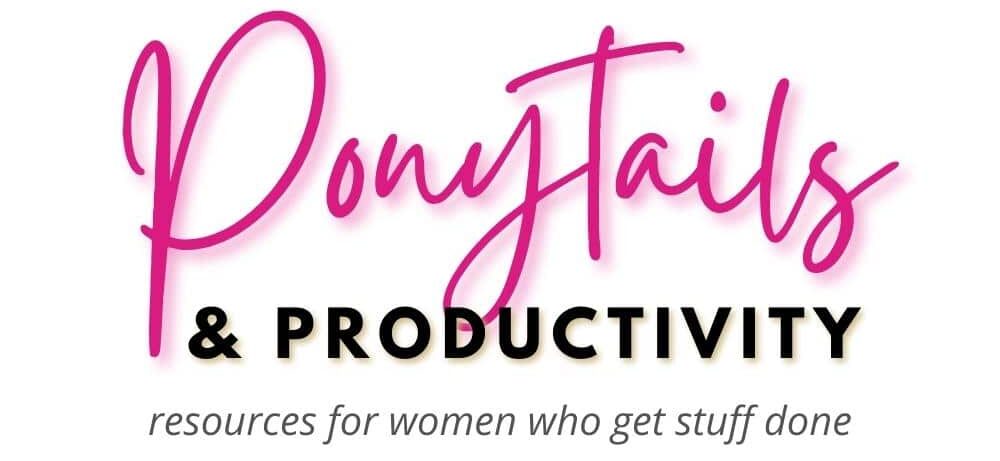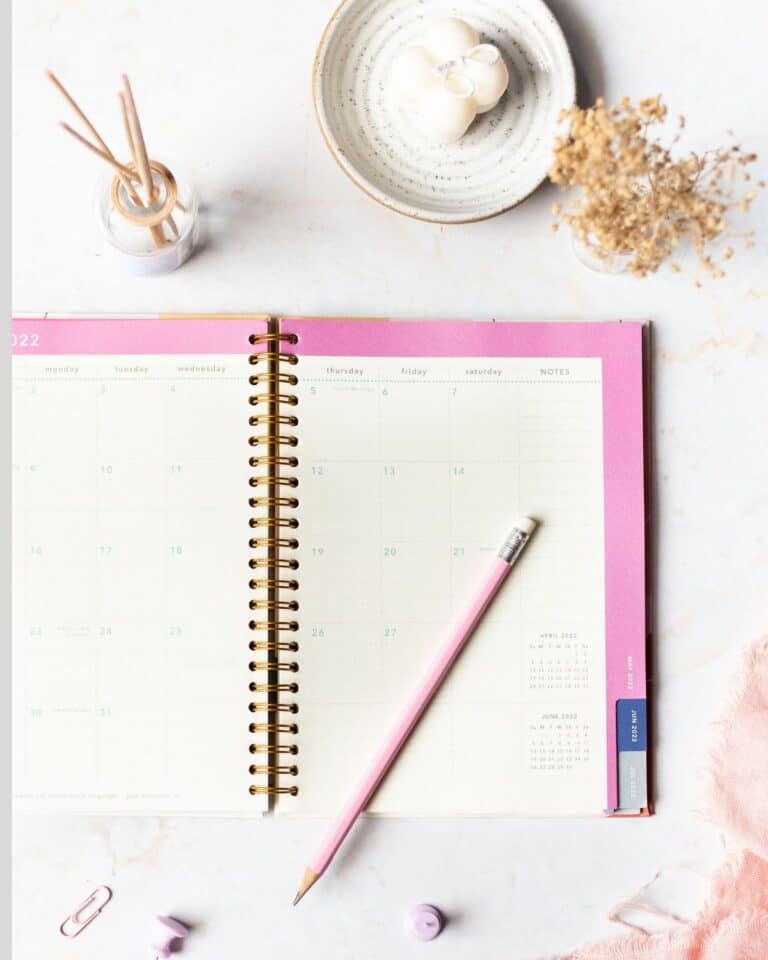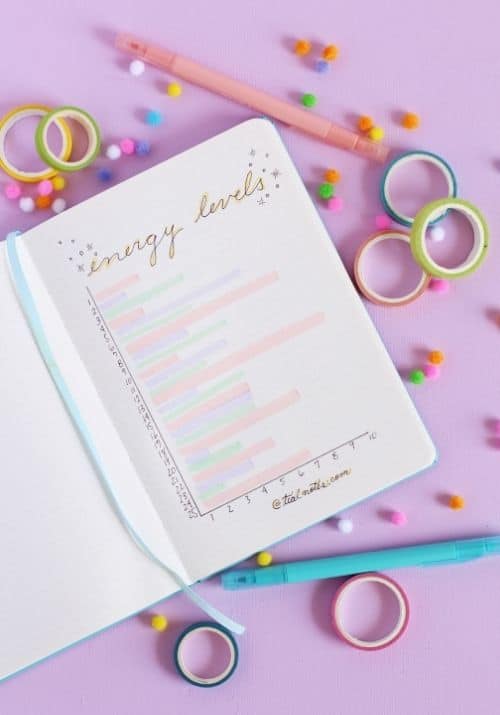101 Personal Growth Goals
“When I went to school, they asked me what I wanted to be when I grew up. I wrote down ‘happy’. They told me I didn’t understand the assignment, and I told them they didn’t understand life.”
Have you heard that one before? The above quote is usually attributed to John Lennon (although there’s no evidence to suggest he ever said that). This quote has been kicking around the Internet for some time, shared in various mediums and formats over the years.
If nothing else, this shows how well it resonates with so many of us.
I’m a big proponent of both long- and short-term goals, and a lot of our posts here focus on achieving big dreams. But I also believe that any meaningful change you could make in your life has to start from inside yourself. You can achieve this with personal growth goals.
Why do we need personal growth goals?
Personal growth, and especially personal growth as a long-term goal, is often neglected when we talk about goal setting. It’s not as easy to cheerlead as a weight loss goal, or as flashy as an income goal. And personal growth is certainly a lot less tangible!
[cboxarea id=”cbox-F7CUBIpvMpO5iwiT”]
But a practice of self-improvement and personal growth is the single strongest building block you can place the foundation of your life on. Knowing and developing yourself can be hard work too, but some of the most rewarding work you may ever take on.
101 Personal Growth Goals
Looking to add some self development goals into your life plan, but don’t know where to start?
I’ve got a list here of 101 personal growth goals to get you started, broken down into 10 categories.
You obviously don’t have to commit to all of these; pick the ones that speak to you the most.

Self Awareness Personal Growth Goals
1. Keep a journal. Try to write daily – not just about what’s happening in your life, but how you feel about it. Here is a fun one:
2. Do you know your Myers-Briggs personality type? You can take the online test here to get your MBTI type. Read through your results and see what comes up for you.
3. MBTI not your thing? Look into the Enneagram theory of personality types and see if that’s more your fit. Learn more in this book.
4. Ask someone who knows you very well what they think your strengths and weaknesses are. Make note of whether you agree or disagree with that assessment.
5. Ask for feedback at work – on your performance, the quality of work you turn in, etc. Accept constructive criticism whenever it’s offered. Observe the feedback you get objectively, as though you were someone else.
6. Read up on body language indicators: what does yours say about you?
7. Keep an eye on how you talk to yourself inside your head. Is the voice mean or encouraging? Would you talk to a friend this way?
8. Identify habits you’ve picked up that may not serve you well. Making a small change can sometimes lead to big results over time.
9. Look back on your life as though it were a book or movie. What events do you remember that shaped your worldview and the person you became? What lessons did you learn from them?
10. Identify harmful or inaccurate beliefs you have about the world you may have picked up subconsciously. i.e., that work has to be an unpleasant experience, or that you don’t deserve to enjoy yourself unless you’ve earned it. Prove yourself wrong.
Skill Set Personal Growth Goals
11. Learn a new language. Seek out native speakers to practice with; even (especially) if you’re self-conscious.
12. Learn to build something with your hands that you didn’t think you’d be able to. Make two of them just to be sure.
13. What’s a side skill that would be highly valuable in your industry (or your dream industry?) Set a goal to teach yourself that skill in one year.
14. Pick up a creative hobby – think photography, painting, dancing, or pottery making – with no intention of being ‘the best’ or even sharing it with others unless you want to.

15. Think about where you want to be in your career. Seek out media – magazines, podcasts, even email lists – targeted toward people in the range you’d like to see yourself in. Pick up on the pain points they discuss, and anything you can learn to give yourself an advantage.
16. Learn how to build a campfire well; then, learn how to start one without a lighter or matches.
17. Ask a friend to teach you something that they can do that you can’t. Teach them something in return.
18. If you drive, learn how to change a tire. Once you’ve got that down, learn how to change your oil.
19. Find a mentor or a coach in your industry to learn from.
20. The next time you’re about to hire someone to do something, see if you can find an online tutorial first. Especially household jobs; sometimes fixing a toilet or replacing a window screen is easier than you thought (and basic home repairs like this can cost you thousands!)
Social Personal Growth Goals
21. Practice active listening as often as you can. Don’t mentally form your response while the other person is talking; truly listen to what they’re saying and ask questions to understand.
22. Do something good for your community without taking credit: pick up litter or make an anonymous donation.
23. Do something nice for someone else every day, without wanting anything in return. This can be as simple as a compliment or more involved, like baking something for a friend.
24. Set some time aside to volunteer for an organization that helps out the elderly, homeless, or hungry. Listen to their stories whenever you can.
25. Write a letter to someone you admire, and tell them why. Send it.

26. Try out a new way to deal with difficult people in your life.
27. Sponsor a family for Christmas.
28. Resolve to cut out toxic and draining people altogether. If someone is bringing your energy down and offering nothing in return; do you really need to spend time on them?
29. Support a local business; patronize small businesses whenever possible.
30. Keep an eye out for your neighbors. Someone in your community probably needs help, whether that’s a hot meal or a shovelled-out driveway. It’s likely they won’t ask for it; make it your job to offer when you see need.
Spiritual Personal Growth Goals
31. Start a meditation practice. Aim to meditate every day – start small and grow as you learn.
32. Even if you are not religious – find something you believe in fully and commit to taking action towards it. This could be a deeply held principle, community service, or simply the gift of kindness.
33. Seek out others who have a different belief system than you. Talk to them about it – without trying to get them to see your point of view as better.
34. Spend some time each day in contemplation. This can be deep thought, journaling, or whatever works best for you. Look for answers within yourself. I absolutely love this book for inspiration and ideas:
35. Learn to pray, even if you don’t believe in a god. Talk to the higher functions of the universe.
36. Cultivate gratitude – count your blessings.
37. Strengthen your intuition – start “listening to your gut” when it tells you something is off or wrong. The more you listen to your intuition, the stronger it gets.
38. Seek out opportunities for acts of service. Use this scratch off poster to keep track of your acts!
39. Read into a practice that intrigues you; maybe tarot or yoga. Practice often.
40. Identify the core values of your belief system and put them into practice.
Emotional Strength Personal Growth Goals
41. Observe how you react to people; especially people who make you angry or upset. Why do you react that way?
42. Don’t keep things bottled up; but learn the difference between getting something off your chest and wallowing in it. One makes you feel better; one keeps you feeling worse for longer.
43. Get good at saying ‘no’ to things that don’t drive you forward.
44. Observe the reaction other people have to you. If you hurt someone by accident, apologize without trying to justify your actions. Learn from it instead of dismissing it.
45. Go one full day without criticizing yourself over anything.
46. Say ‘yes’ to things that will take you outside your comfort zone.
47. Set healthy boundaries and don’t be afraid to enforce them; developing emotional strength does not mean “smiling it away” when people walk on you.
48. Identify any past trauma or negative experiences you carry with you. Work through them, whether through meditation or journaling, or seeing a therapist.
49. Practice forgiveness for people that have hurt you. Let it go.
50. Take some time every morning to compliment yourself. Even if you don’t believe yourself at first – say it out loud like you would to a friend. Build a practice of self-love. Check out these cute motivational cards you can read to yourself!
Intellectual Personal Growth Goals
51. Develop a reading habit: seek out books you wouldn’t normally turn to. Maybe join a book club!
52. Sit in on a poetry reading.
53. Build “brain games” into your recreational activities: this can be something like chess or similar board games, or even crosswords or sudoku puzzles.
54. Attend an art gallery showcase.
55. Watch TEDtalks or YouTube videos on topics you don’t know much about. Look up things you still don’t understand by the end.
Here is my personal favorite:
56. Visit every museum in your town or county – even the boring ones.
57. Take an online course on an area you want to improve in. Thanks to the internet, you can find courses on pretty much any topic you can think of! If you’re not sure where to start, try finding blogs or websites that focus on your topic, and see if they have one they recommend – or even one they teach.
58. Aim to never be the smartest person in the room.
59. Analyze themes and patterns in the media you consume for fun to develop critical thinking skills.
60. If you have a university or college near you, look into auditing a course. Auditing is when you attend the classes like a regular student and learn the materials, but aren’t responsible for assignments or exams and don’t receive grade credit (not all schools allow non-students to audit; many schools charge for the course – check with your local school before showing up!).
Health Personal Growth Goals
61. If you don’t already have a fitness routine, start one – or if you do have one, try changing it up. Find an activity you really enjoy and commit to doing it on a regular basis.

62. Find an accountability partner.
63.Try out a sport or workout method you thought you’d never do. Stepping outside your comfort zone workout-wise is a great way to engage muscle groups you might normally ignore – and keep your brain and body engaged on something new.
64. Take a new fitness class you’ve never heard of.
65. Try eating as much local fresh produce as possible. Or, try going vegetarian two days a week.
66. Take a self-defense class.
67. Start a mindfulness practice. Research shows that time spent in regular mindfulness can reduce stress, lower blood pressure, and even relieve chronic pain.
68. Choose to bike or walk instead of driving whenever feasible.
69. Set a strength or flexibility goal; any fitness goal that isn’t solely entered around weight loss. Pay attention to how your body feels and look for improvements.
70. Join a 30-day challenge and participate fully – share your progress with other participants
Self Care Personal Growth Goals
71. Block aside one week to go to bed earlier and get more sleep. Observe how you feel by the end of the week. Use a Fitbit to analyze your sleep. I recently got this one and I absolutely love it!
72. Block out one hour every day just to do something nice for yourself.
73. Take stock of areas where you struggle with self-care. Self care isn’t just about bubble baths and spa days, it’s also about feeding your body well, resting when you need to, and doing things that will improve your life. Identify an area you could be doing better in; then work to change it. I love the ideas in here.
74. Identify better ways to deal with stress; practice them.
75. Take some time to deep clean and declutter the area of your home you spend most time in. Make it smell nice, and look beautiful. I absolutely love the smell of lavender after cleaning. It is so calming. Here is my favorite kind of oil and the diffuser I use!
76. Develop a skincare routine for the morning and night.
77. Ask yourself every day: what’s something I could do right now to make tomorrow easier? Then go do that.
78. Build active rest into your days; go on walks, visit parks.
79. Practice gratitude every day before you go to bed.
80. Do you have a habit of slouching, biting your nails, keeping your shoulders tense? Identify nervous habits and set regular reminders to release tension and relax your muscles. I recently learned of this device from my physical therapist. It has done wonders for my posture.
Creativity Personal Growth Goals
81. Buy a paint set and paint yourself a picture. Don’t overthink this: do whatever comes to mind, even if it doesn’t make sense or look “good.” Here is a great kit that includes everything you need.
82. Try brainstorming ideas for your latest project or solutions to your problems. Get as wild as possible; think outside of the box.
83. Follow your curiosity: the next time something catches your attention, pursue it. Whether that’s going into a new shop on the street or following a link to read something interesting.

84. Let yourself daydream when the urge strikes you (just not while you’re driving!).
85. Write a story about something you’ve always wanted to read.
86. Find an area in your home that doesn’t get a lot of love. Decorate it with your favorite colors and things to look at. Change it up often.
87. Change your surroundings to break out of patterns of thinking; try journaling in a coffee shop, or even just rearrange your desk space for work.
88. Travel whenever you get the chance.
89. Change up your clothing, makeup or jewelry style for a few days.
90. Take the chance to play with children whenever possible; let your imagination guide you.
Future Personal Growth Goals
91. Set long-term goals: create a 10-year plan for your life.
92. Make a vision board for your goals this year. What sorts of things do you want to see in your life? Not sure where to start? This helps.
93. Write your Dream Life Manifesto.
94. Seek out personal development books, podcasts, or other media and create your own personal development plan.
95. Find a role model; someone you look up to. Figure out what it is about them that you like, and strive to emulate that in your day to day life.
96. What would you do if you knew you could not fail? Start working toward your big dreams.
97. Learn how to break the procrastination habit – practice building self-discipline.
98. Set up daily routines to make accomplishing your mini goals part of your day. One of the best things about setting daily routines is that once you’ve made it a habit, the important things get done on autopilot.
99. Make the commitment to take full responsibility for your life.
100. Get a planning system that works for you and start using it. An effective planner isn’t just for appointments; it’s also for tracking your goals and progress.
101. Remember that goal setting is a process, not a product: practice consistency and stop giving up. Results can sneak up on you when you least expect it.
101 Personal Growth Goals
Looking for some more inspiration on goal setting? Check out these posts:
- Why is Goal Setting So Important?
- 101 Life Goals to Add to Your Bucket List
- How to Make a Vision Board – and why you should have one
- The Secrets of People Who Always Hit Their Goals
or our eBook/Audiobook on getting goal setting done in 10 easy steps:
Pin it on Pinterest:
















